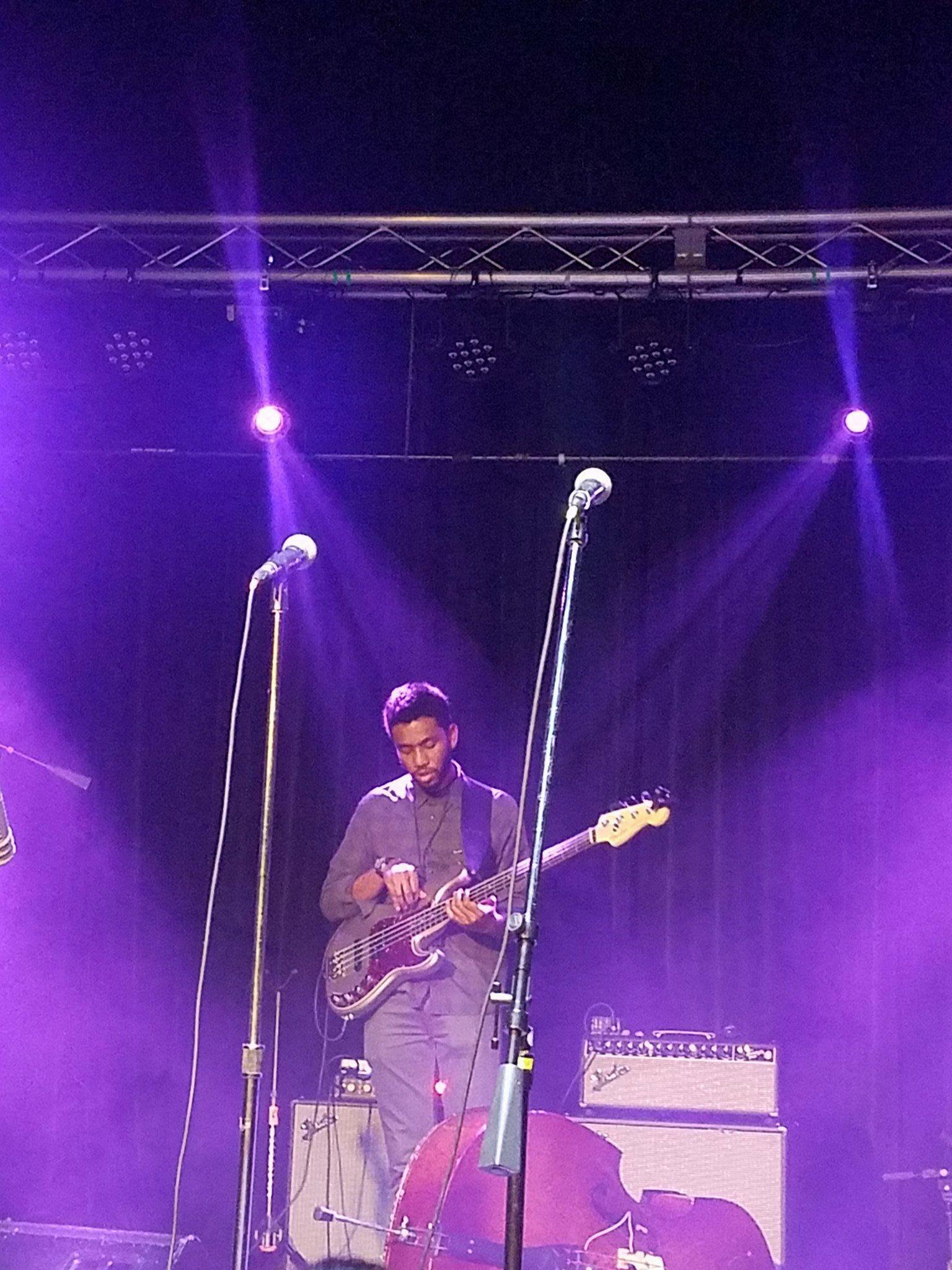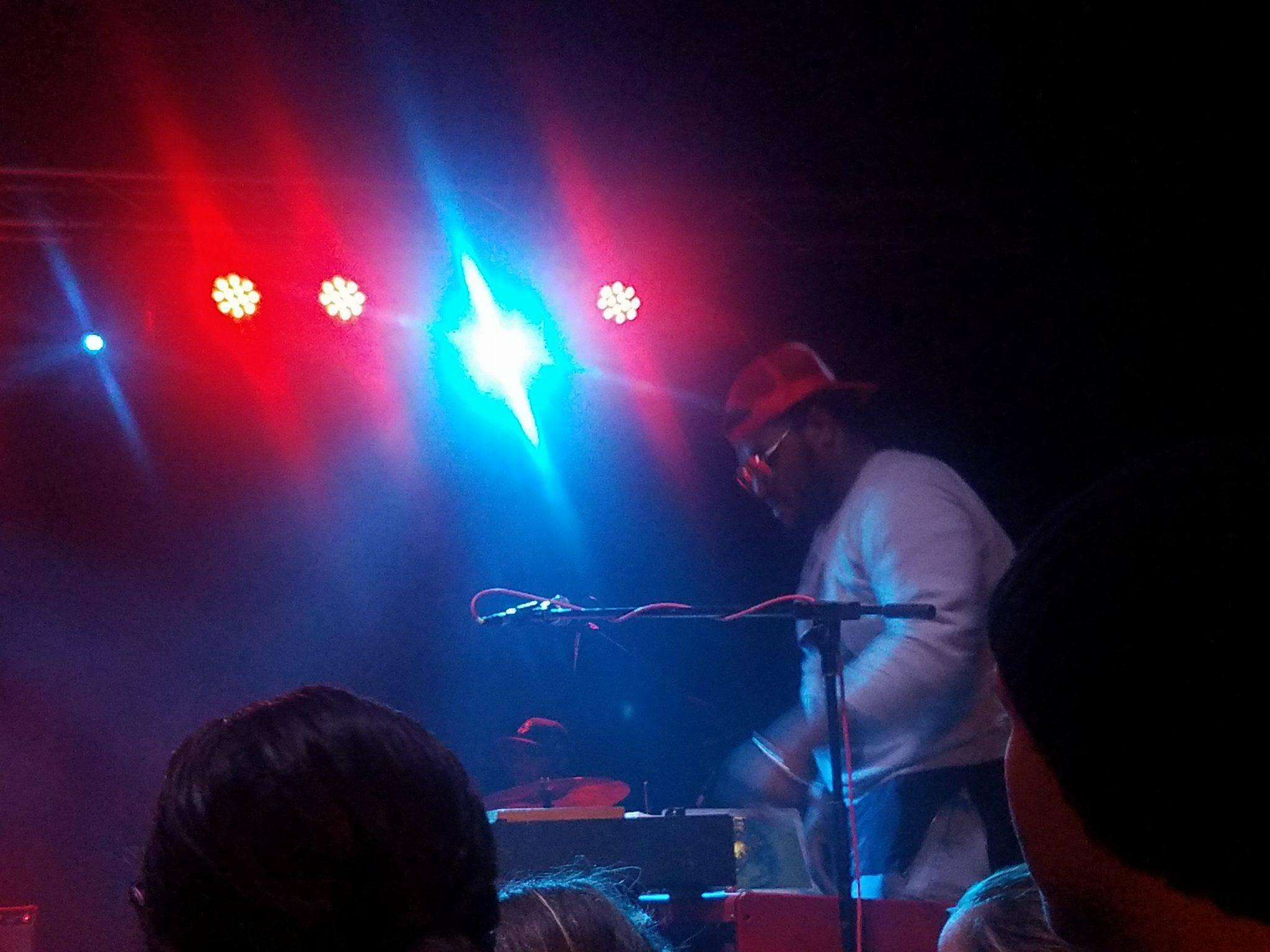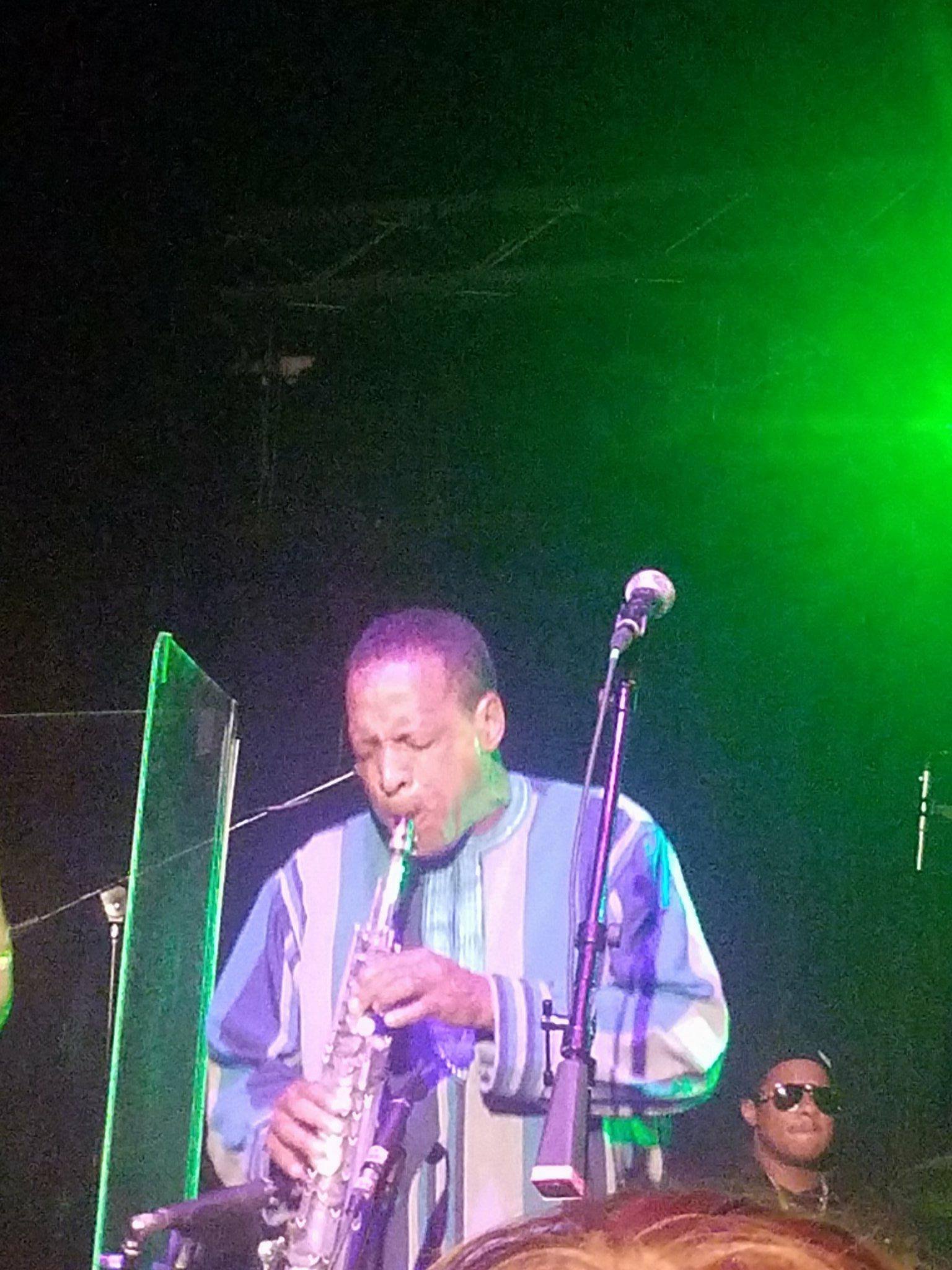Kamasi Washington: Washington Commands Canopy Towards Glory
It’s easy to see that Kamasi Washington has been steadily reaching for a chair at the dinner table of greats, where jazz saxophonists like John Coltrane, Dexter Gordon, and Sonny Rollins remain seated, waiting on a flamboyant meal. Kamasi Washington is serving talent with a side of personality and innovation, as he pioneers a new era of jazz. He boasts a small but powerful collection of projects, notably his most recent EP, Harmony of Difference, accompanied by the album which brought him critical acclaim, The Epic. Washington’s musical path has led him to collaborate with huge hip-hop personalities—from old-school heavy weights like the revolutionary Lauryn Hill to the current lyrical heavyweight rapper Kendrick Lamar.
Kamasi Washington graced the Canopy Club stage November 14th, 2017. The show acted as an effective method of escapism for students (or at the very least me) amongst a week of rushed exams and stepped-on Hello Kitty mechanical pencils (also a product of me). For those unfamiliar with Kamasi’s work, he’s a jazz saxophonist and musical savant. All of his work is instilled with an almost cosmic beauty; if an alien was to land on our planet I’m convinced they’d ask to attend one of his shows. He has a warm smile, an intentional stare, and relentless lungs. This guy can rock a sax.
I experienced Kamasi’s presence firsthand before the show. He stood tall and composed, dropping crumbles of Manolo’s empanadas onto the floor below. His entire crew ordered before me as I pushed my slacking shoulders against the counter annoyingly. I eyed Kamasi from afar as I was too scared to pounce on him and ask him for a photo or anything that would dampen his experience with the local cuisine. His attentive and firm grasp of the crispy empanada shell was enough to make me feel cradled. There was a moment where we both crunched into the empanada in unison, they all thought I was weird.
The night started with a performance by The Poblano Project, a talented ensemble of young jazz musicians. Their show was littered with incendiary solos, each lighting up the eyes of the audience with wonder and appreciation. I’m not in the least familiar with what makes up a good xylophonist, but the man playing xylophones seemed to play faster than the speed of sound. It was insanely admirable to see a group come out displaying an immense amount of effort and respect towards the power of instruments in unison. During each individual’s solo, the others would grasp their instruments close to their chest while swaying to the echo of each other’s gift of song. The Poblano Project did everything you’d hope a modern jazz band would do and more. They seemed to follow Kamasi Washington’s general philosophy of love for music and appreciation for the world around you.

This was my first Kamasi Washington concert and without a doubt not my last. His presence is colossal. He stands towering with his large frame and glimmering sax, a distant mirage, even though he was within ten feet of me. To review a jazz performance takes a technical understanding of music that I do not currently possess. Had I intended for this article to be anything more than a hopefully wholesome recollection of a performer’s greatness, I would’ve spent hours on Wikipedia accumulating a cold knowledge of jazz-based terminology. Instead, I shall be describing his performance and songs through visceral images. His first song: a baby crying if its father was Apollo and its mother Cher.
The second song encapsulated a very niche moment for me. I pictured a factory’s final product ever being manufactured, its physical and sentimental weight being slowly carried by a conveyor belt that everyone knew was never going to shift again. This feeling was conjured by the symphony of sound Kamasi Washington orchestrated. His fellow band members consisted of an amazing female vocalist, two drummers, two keyboardists, and one bass player who rotated between playing the cello, oh and his father on the flute. The harmonies and playfulness of having two pivotal instruments doubled up and thusly locked in duality, the keyboardists and drums, added to this sentimental sensation of creation. Every song felt as if it was birthing a new feeling, idea, or passion for the audience and the musicians themselves.

Clearly, Kamasi Washington held all of his fellow bandmates in high regard, constantly smiling and talking up the stories of the artists surrounding him. The keyboardist to his right, Hot Sauce, had a whole origin story which Washington recited. This story centered around Hot Sauce’s journey in finding different sounds he loved and in turn different titles including professor boogie among others. How did he receive his current name Hot Sauce? Simple, any track you put him on instantly becomes better.



Kamasi Washington commanded Canopy’s stage with wonder and grace. His ability to convey his personal philosophies regarding an embracement of multiculturalism, diversity, and love shone through his music consistently. Never did I find myself questioning the authenticity or message of his music. Every soul on that stage played a key role in creating such a warm and mystic space for the night. After the show was over I was able to catch Kamasi in passing. Before he made his way through a back door, I spurted out, “Can I please shake your hand?” He looked drained from wailing on the sax for around two hours but still reached out his hand and gave me a quick shake. The craziest part, his hands weren’t even sweaty.
